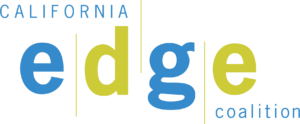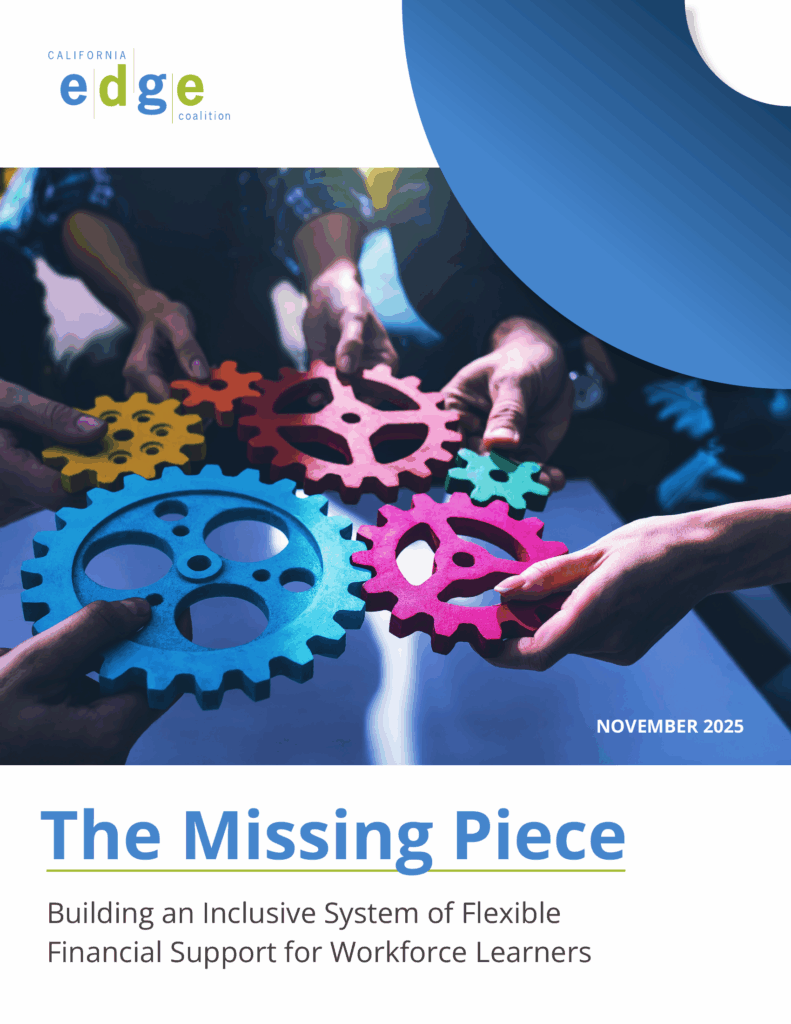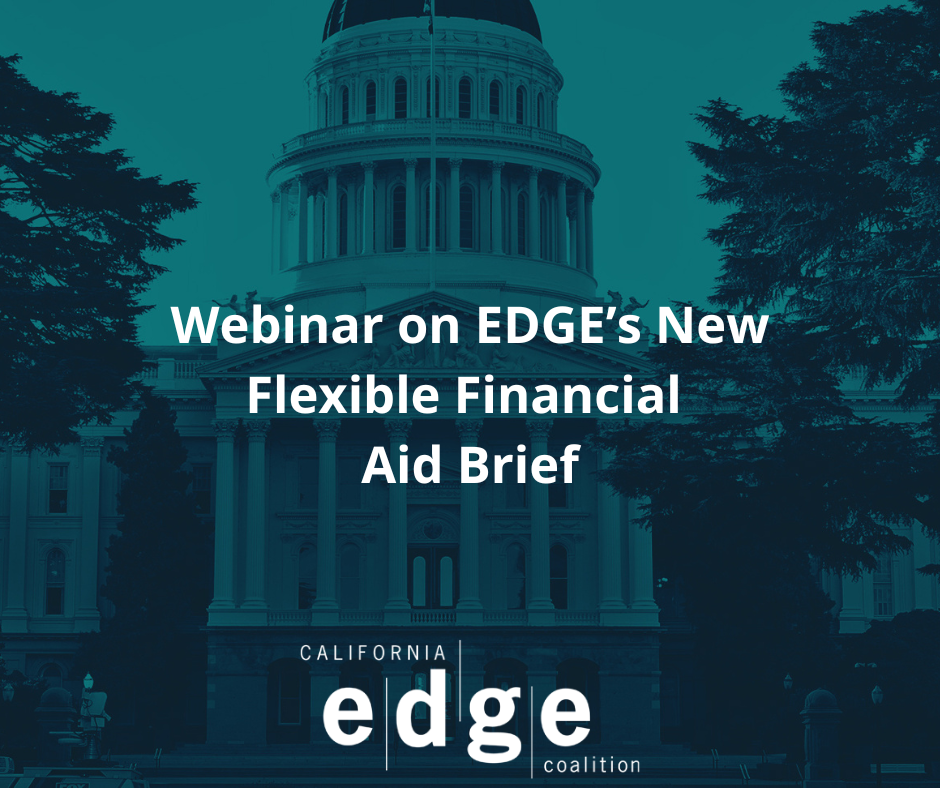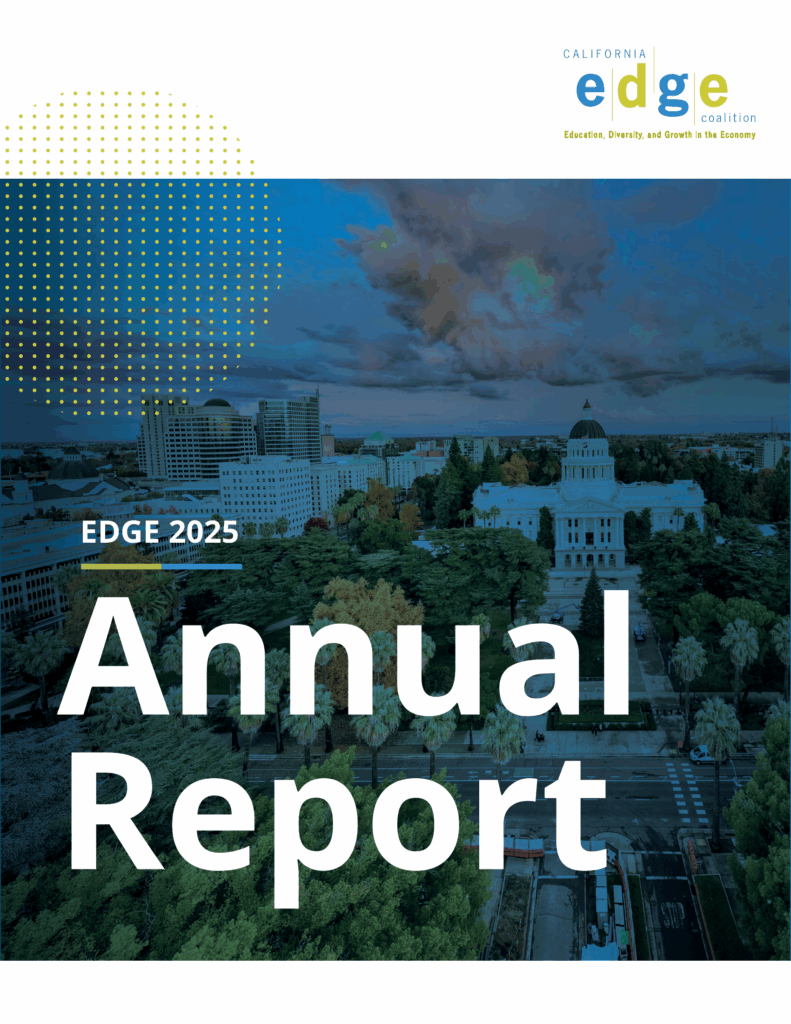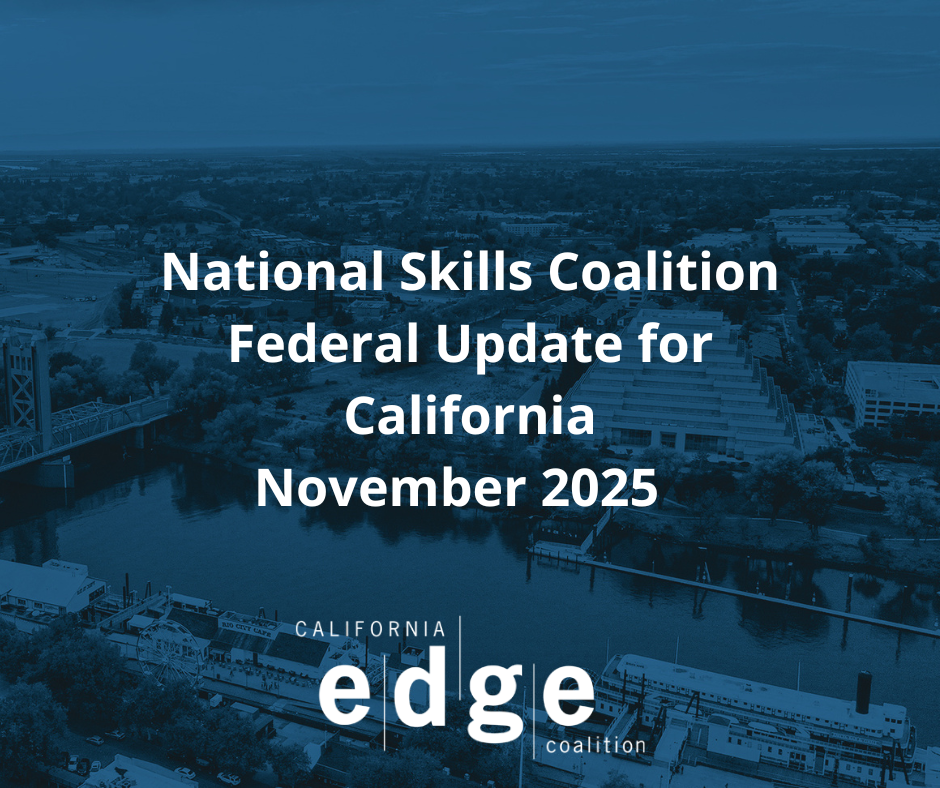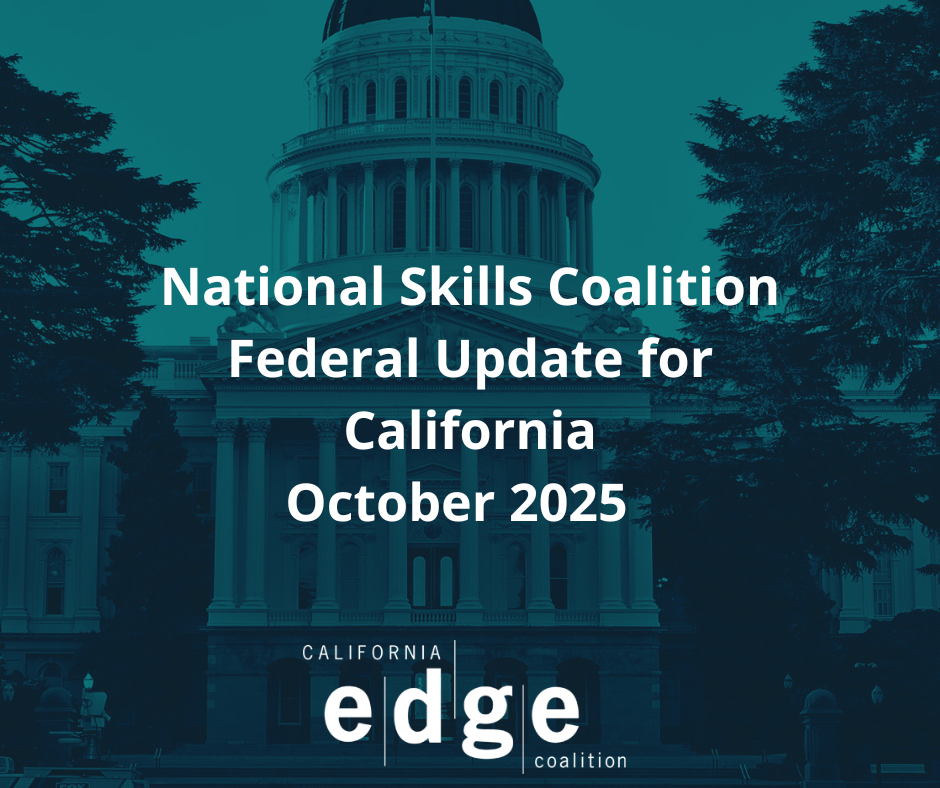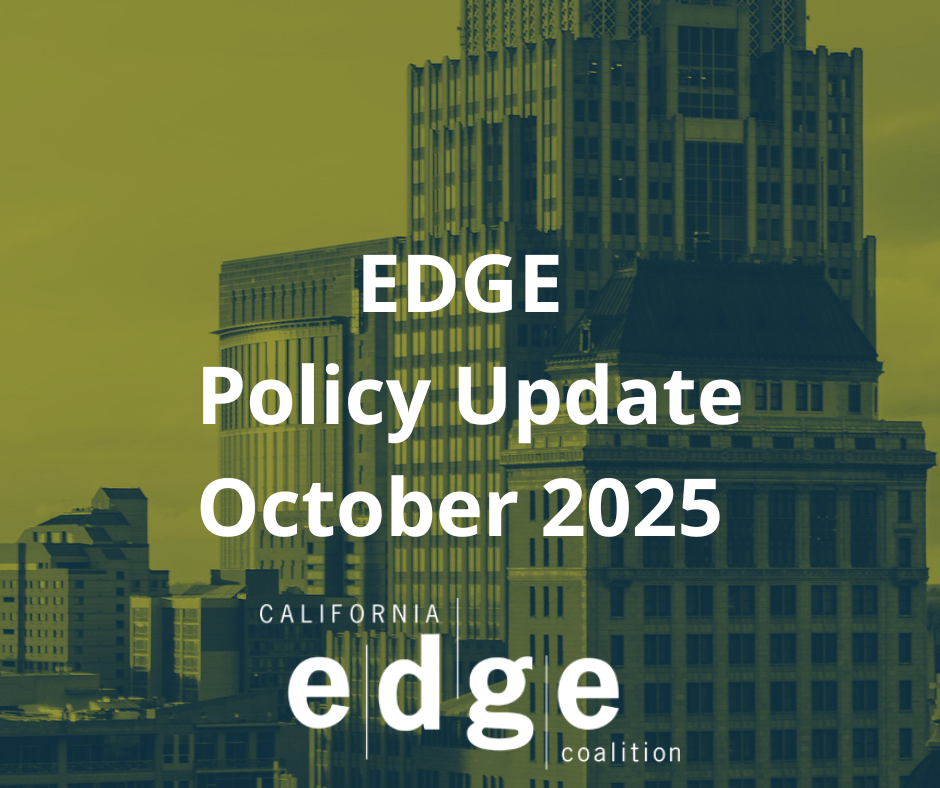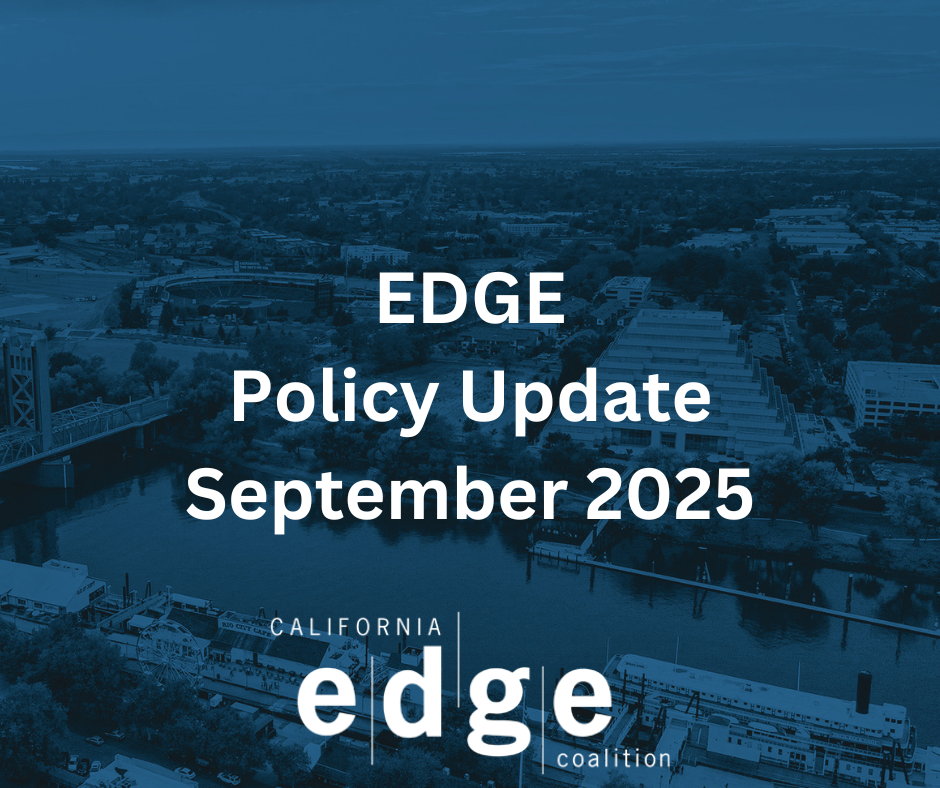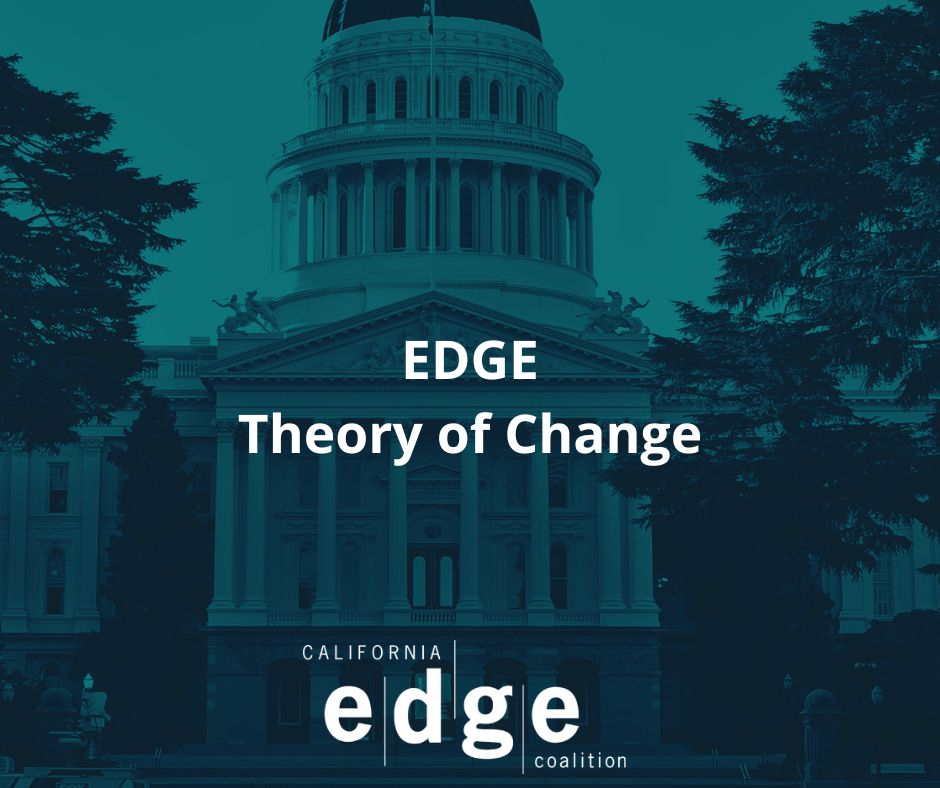California’s workers are eager to gain the skills needed for the jobs of the future — but too many still face barriers that make training out of reach. While tuition may be covered, everyday expenses like childcare, transportation, housing, and
News & Events
EDGE to Host Webinar on New Flexible Financial Aid Brief, December 11, 2025
As California’s economy continues to change, the need for a highly skilled workforce has never been greater. Yet for many Californians, pursuing postsecondary training still requires choosing between earning a paycheck and gaining the skills needed for economic mobility. To
EDGE Coalition 2025 Annual Report
We are proud to present the EDGE Coalition’s 2025 Annual Report, a testament of the collective progress we’ve achieved together. Over the past year, we’ve advanced significant systemic changes in California’s education and workforce development systems, laying the groundwork for
National Skills Coalition Federal Update for California November 2025
Government Shutdown Comes to an End After the longest shutdown in U.S. history, the federal government reopened on Wednesday, November 12, after eight Senate Democrats voted to end closure in the Senate. The package: Includes full-year bills for the Departments
National Skills Coalition Federal Update for California October 2025
Federal Appropriations & Shutdown During the Summer, federal activity around appropriations and implementation guidance accelerated, but momentum has since slowed amid the ongoing federal government shutdown. The shutdown, now stretching into its third week, has stalled key agency operations,
EDGE Policy Update – End of Session Wrap-Up – October 2025
On October 13th, Governor Newsom took action on more than 900 bills passed by the Legislature, marking the close of the 2025 legislative session, the first year of the two-year session. All bills that were signed by the Governor will
EDGE Policy Update – September 2025
On Saturday, September 13th, the 2025 legislative session officially concluded. The Legislature passed the remaining bills, and are now pending on the Governor’s desk for approval. Several of EDGE’s priority bills advanced from their final floor votes – including bills
EDGE Launches New Theory of Change to Advance Economic Mobility and Inclusive Prosperity in California
EDGE is proud to announce the release of our new Theory of Change – a roadmap that illustrates how our mission and vision translate into real impact for Californians. Earlier this year, we unveiled our refined mission and vision, which
